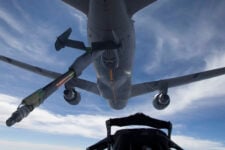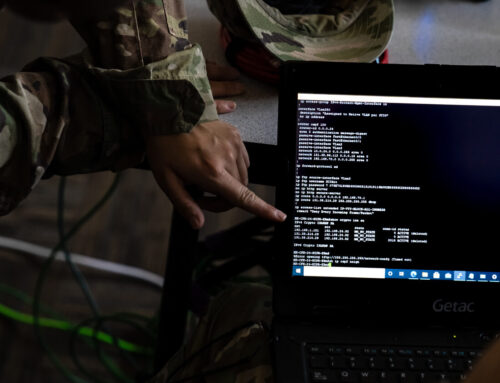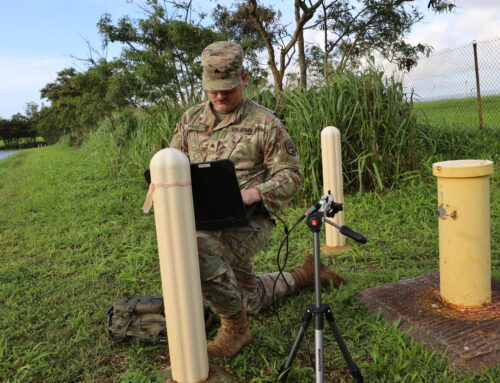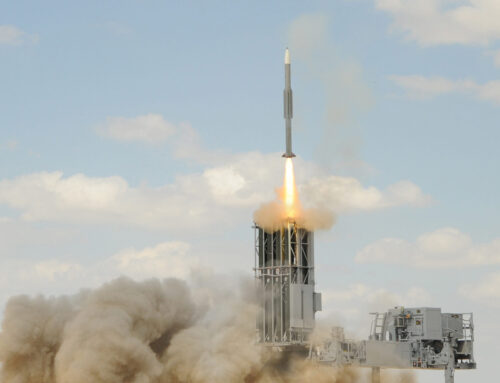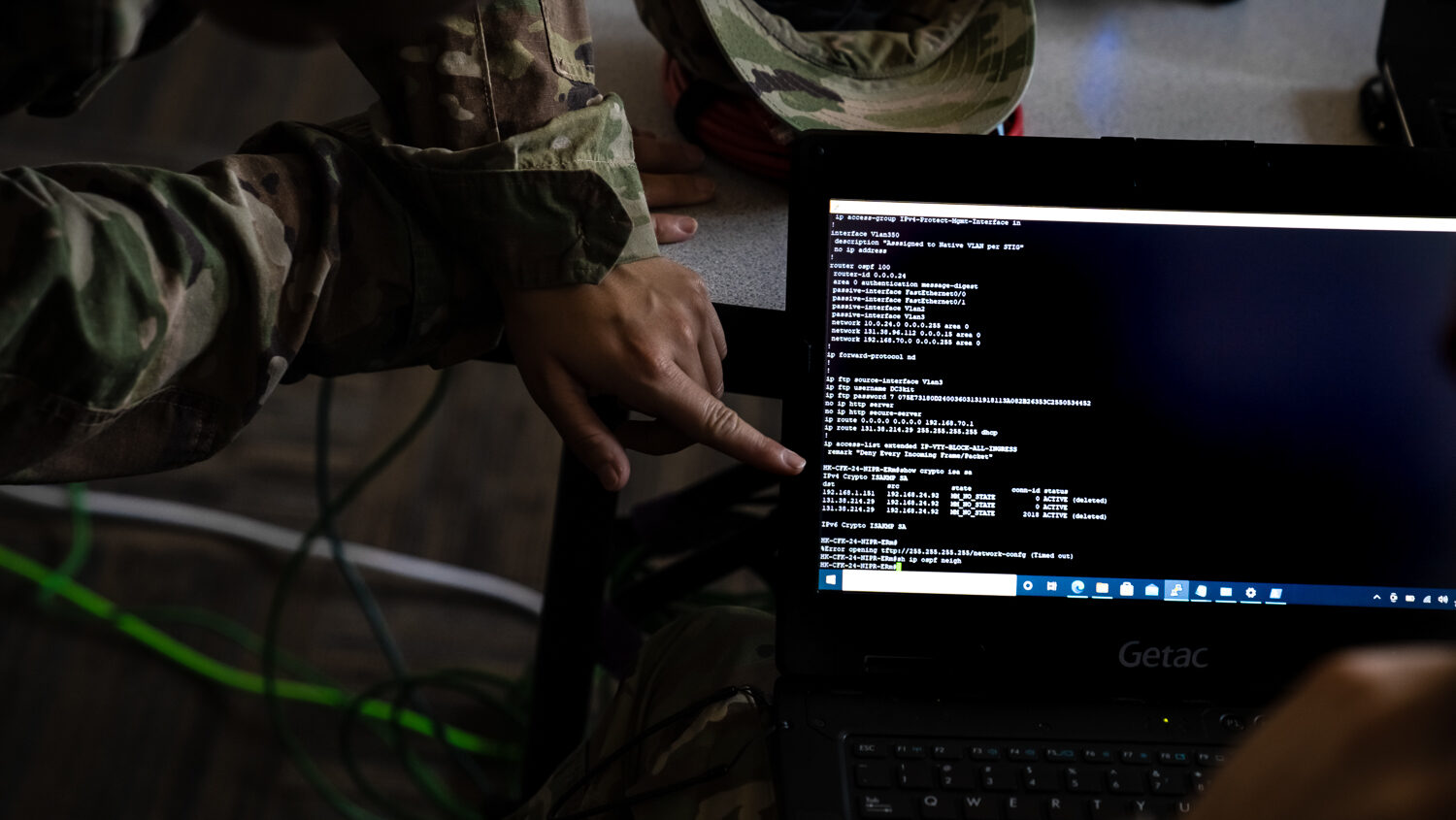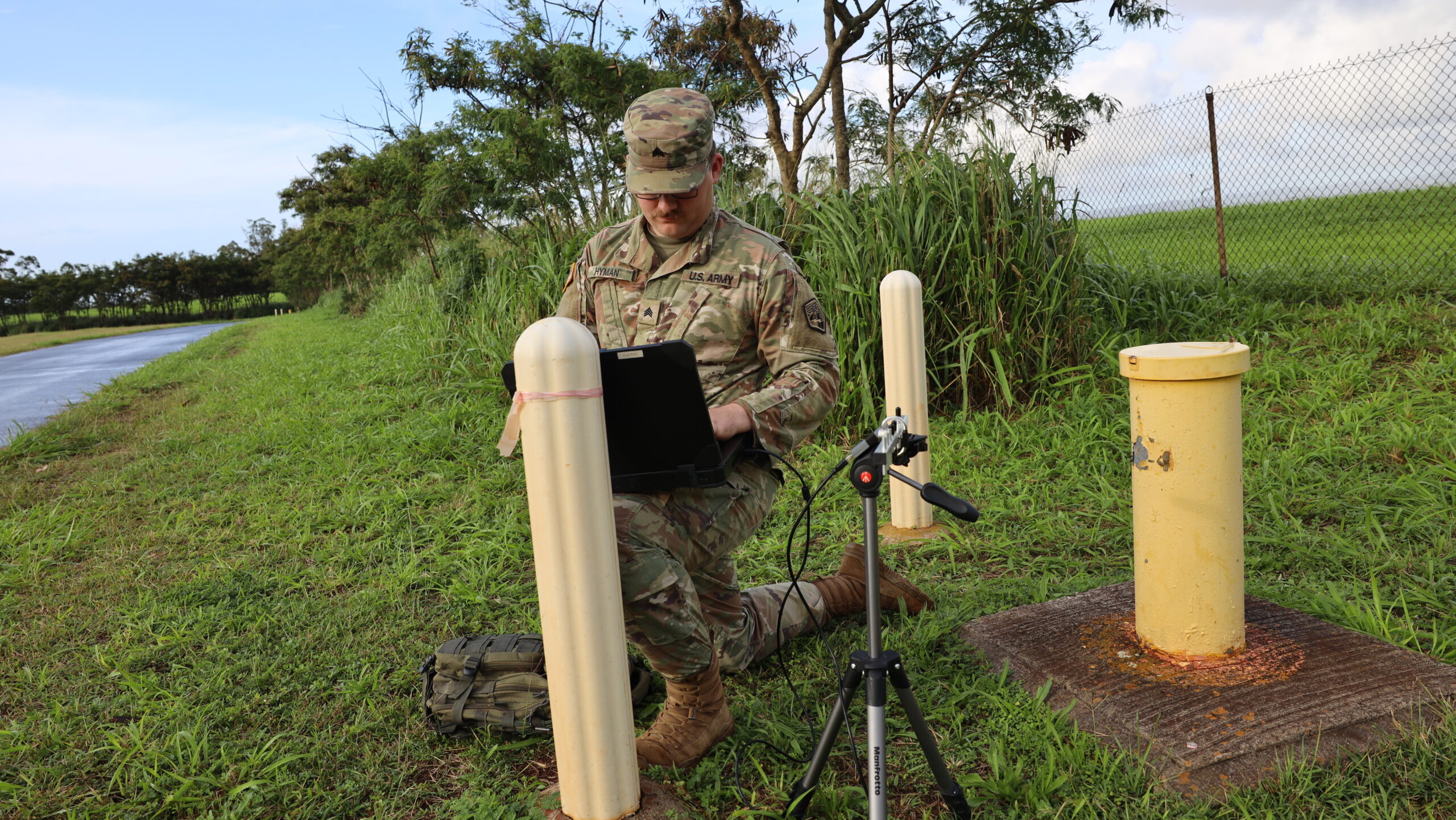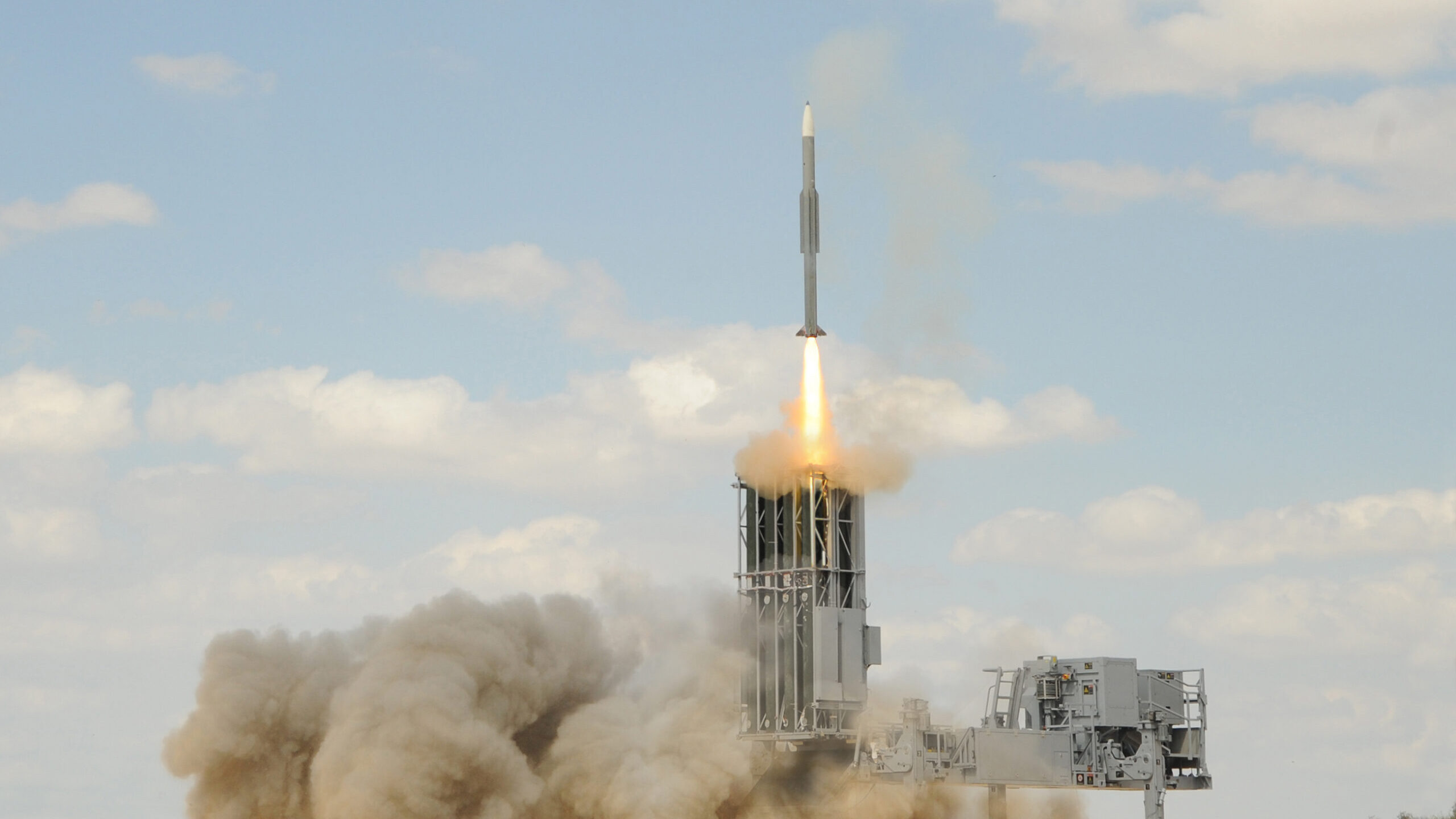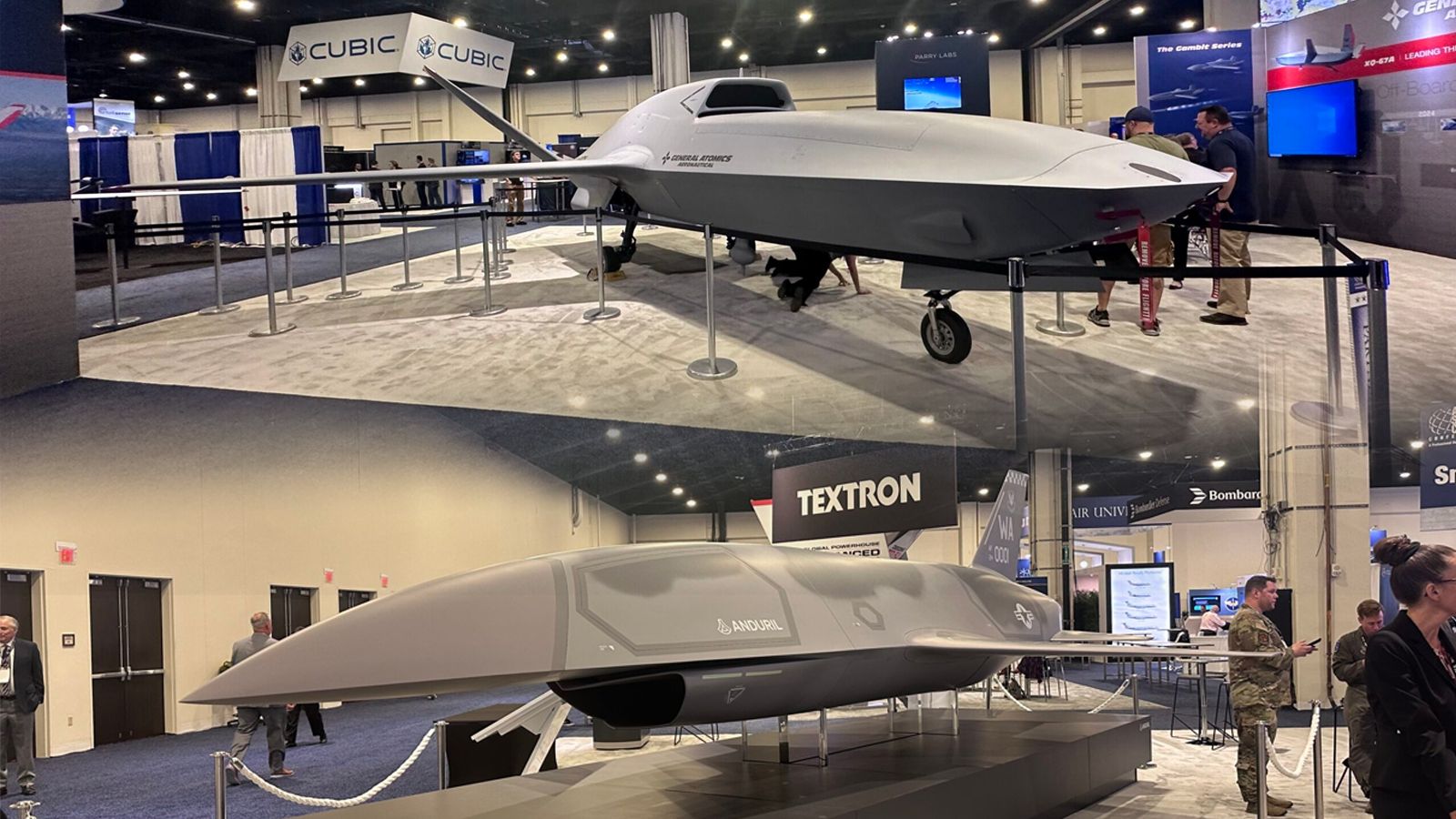A KC-46A Pegasus aerial refueling aircraft connects with an F-15 Strike Eagle test aircraft from Eglin Air Force Base, Florida, on Oct. 29th, 2018. (U.S. Air Force photo by Master Sgt Michael Jackson)
WASHINGTON — The US Air Force has not accepted any new KC-46A Pegasus air refueling tankers from Boeing since March due to an issue with a broken part on the aircraft’s boom, though the service expects to accept two new aircraft by the end of the month, an Air Force spokesperson said in a statement.
“There was a brief pause in KC-46 deliveries starting in March 2024 after a fleet inspection revealed a broken boom gimbal nut lockwire. The gimbal is the ‘swivel joint’ that provides boom movement in all 3 axes and the gimbal nut secures the boom to the gimbal,” the spokesperson said.
“Deliveries were paused while production and fielded aircraft completed inspections to ensure continued safety of the fleet and receivers,” they added. “The DAF [Department of the Air Force] completed all aircraft inspections and resumed the aircraft acceptance process; two aircraft are undergoing final inspection stages and are expected to deliver by 31 May 24.”
“We are working closely with the customer to mitigate any impact to the fleet and are committed to delivering the KC-46A with a focus on safety and quality,” Boeing said in a statement. Aviation Week first reported the boom issue and delivery impact.
A Boeing official, speaking on background, added that there was not a formal pause in deliveries. “Rework to address the gimbal issue resulted in a slower pace on the production line. The delivery process has resumed and we expect to deliver 15 KC-46As to the USAF this fiscal year, with 2 delivered to date,” the official said.
The pause adds to a string of woes for the KC-46A, whose deliveries were paused last year for several months due to a supplier issue.
After signing a fixed-price development deal for the Pegasus in 2011, the KC-46A has been a headache for Boeing ever since. Its developmental woes have forced the aerospace giant to absorb over $7 billion in losses to date and several critical issues still plague the aircraft, which is a militarized version of Boeing’s 767 commercial jet.
One leading issue troubling the aircraft is the Remote Vision System boom operators use to gas up friendly planes. Its successor dubbed RVS 2.0 is now expected to be fielded in 2026, a delay of roughly two years, Air Force acquisition chief Andrew Hunter revealed in March.
Boeing’s staggering losses on the Pegasus are a key reason why the company has sworn off signing any more fixed-price development contracts for its beleaguered defense business. Boeing Defense, Space & Security turned a profit in the first quarter of this year, though the company logged a $128 million charge on the KC-46A alone.
Despite its issues, the KC-46A is seen by some analysts as having a leg up over Airbus’s A330 MRTT in a forthcoming Air Force program to recapitalize more of the service’s aging KC-135 refuelers. The Air Force expects to determine its acquisition strategy for that effort in the third quarter of fiscal 2024, Hunter previously told lawmakers.
The Air Force originally contracted with Boeing for up to 179 of the tankers, though Hunter told lawmakers the Air Force now plans to buy four more for a total fleet size of 183.


